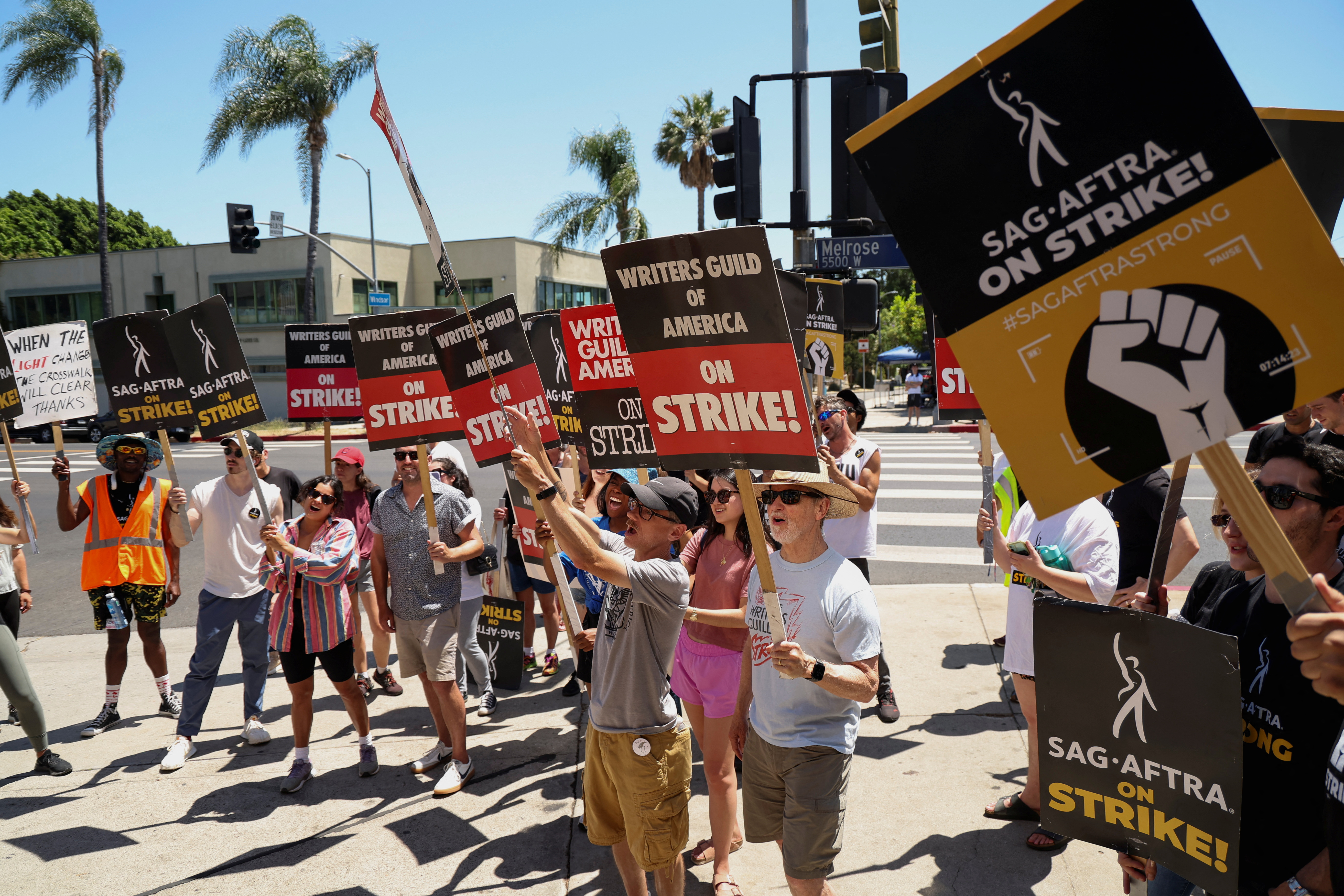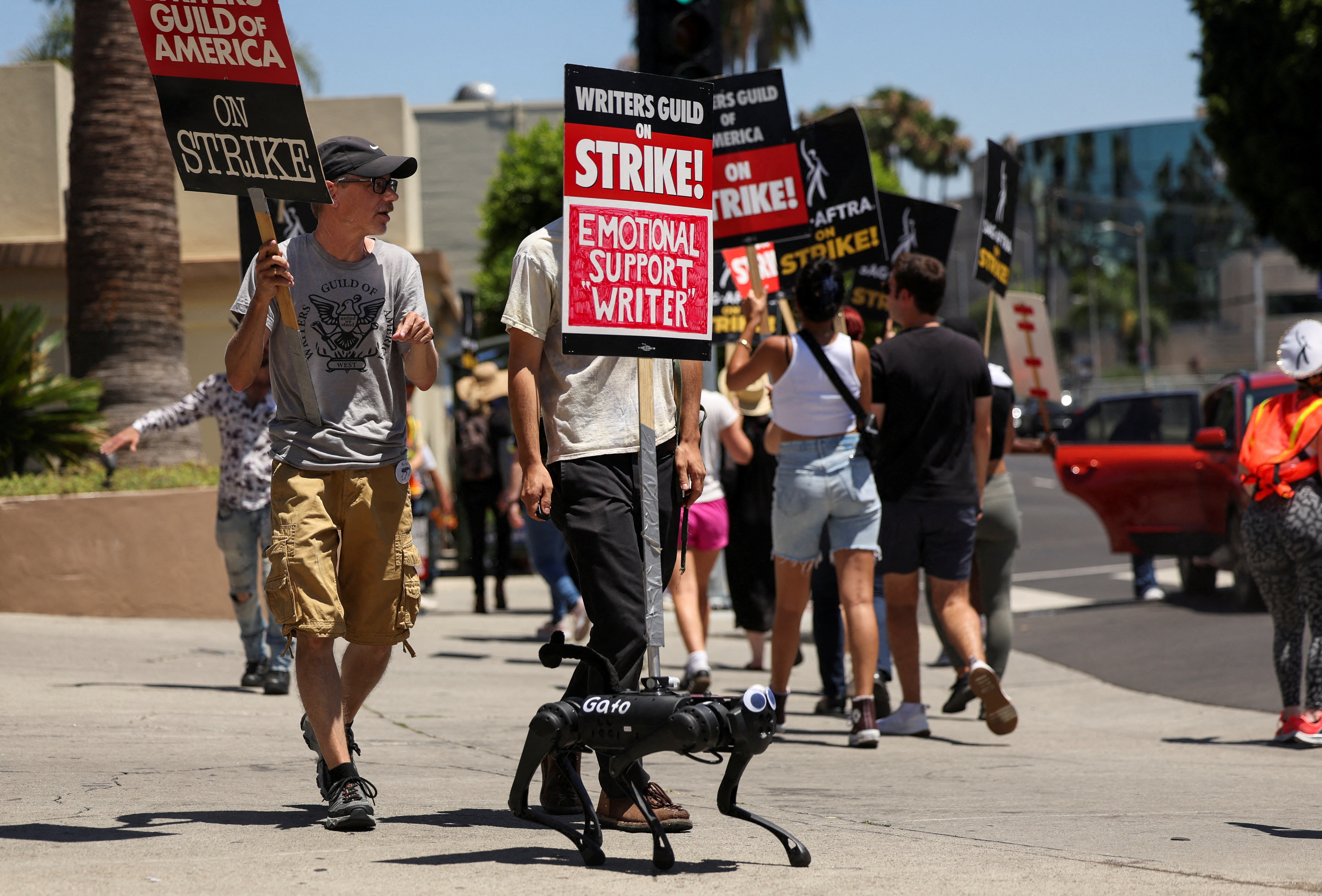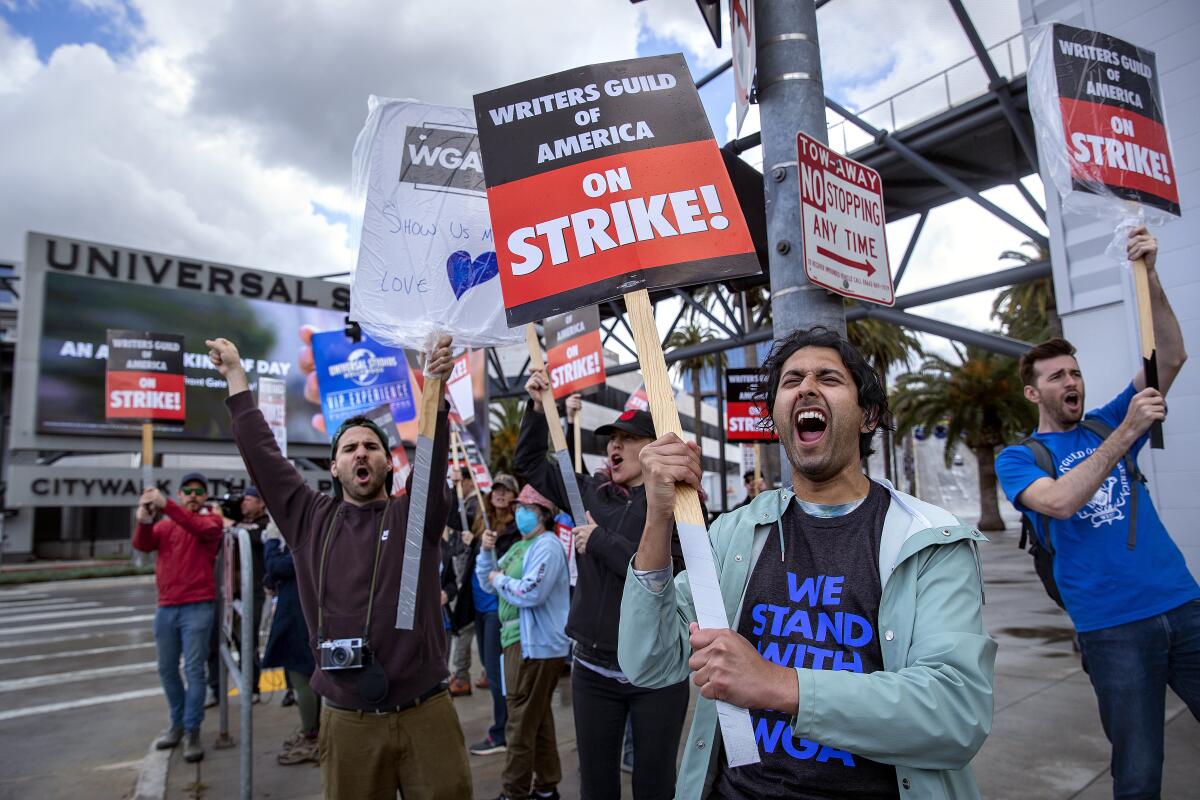Hollywood’s Ongoing Writer’s Strike Saga: A Deal Remains Elusive as Summer Fades

Hollywood’s Ongoing Writer’s Strike Saga: A Deal Remains Elusive as Summer Fades
Summer is coming to a close, but Hollywood is still stuck in strike Hell. In the nearly four months since the Writers Guild of America, West, went on strike, television schedules have been shaken up, movies and shows have been bumped, once-glamorous red carpets have gone dark, and the laughter of late-night has died. The entertainment industry, which thrives on creativity and storytelling, has been left in limbo.
A few weeks ago, when the pain of the enduring stalemate began to cause a wince, studios moved to reinitiate talks with the writers, eliciting a sense of cautious optimism in Tinseltown. It seemed that after an exhausting summer, rife with endless hours of picketing and rhetoric fueled by inflamed passions, hope was on the horizon. But those glimmers of hope for an elusive agreement turned out to be a mirage. Now, on the precipice of Labor Day Weekend, a deal is nowhere in sight. Schools are starting back up, the weather is cooling, but Hollywood remains enmeshed in a labor dispute for the ages.
Studio executives believed they had made strong efforts in recent weeks to end the standstill. Represented by the Alliance of Motion Picture and Television Producers (AMPTP), the studios delivered to the writers terms that they had hoped could be the starting point for a negotiation that would ultimately lead to an agreement. But they were deeply mistaken. The writers, represented by the Writers Guild of America (WGA), scoffed at the offer. For them, it was grossly insufficient on a number of fronts.

From there, the AMPTP tried appealing directly to members of the WGA by publicly releasing the terms of their offer. Perhaps, they had hoped, when the WGA membership base saw the offer for themselves, it would lead to a mutiny that could tilt the scales in their favor. The bold move signaled how confident the studios were in the offer they had put on the table.
The strike, which began on a scorching summer day, has proven to be a long and arduous journey for both the writers and the studios. At the heart of the dispute are several key issues that have proven to be deeply divisive.
One of the primary sticking points is compensation for writers in the age of streaming platforms. With the rapid proliferation of streaming services, the traditional model of compensation has been upended. Writers argue that they deserve a larger share of the profits generated by their work, especially when their content becomes a hit on streaming platforms. Studios, on the other hand, are grappling with the evolving landscape of the entertainment industry and the need to balance their own financial stability.

Another contentious issue is the demand for increased job security for writers. The volatile nature of the entertainment industry often leaves writers uncertain about their next project. The WGA has pushed for stronger guarantees of employment, while studios are wary of committing to long-term contracts.
Additionally, writers are advocating for better healthcare and pension benefits. The demanding nature of their work, often involving irregular hours and unpredictable income, has underscored the need for robust benefits to support their well-being and financial security.
While the issues at the heart of the strike are complex, the impact on the entertainment industry has been stark. Television viewers have witnessed the postponement of beloved series, with some shows even getting canceled due to the protracted strike. Moviegoers have seen delays in the release of highly anticipated films, leaving theaters with empty screens.
Beyond the immediate disruptions, the strike has sent shockwaves through the industry’s workforce. Crew members, actors, and various other professionals who rely on the industry for their livelihoods have been sidelined, leading to financial strain and uncertainty. Hollywood, which often thrives on collaboration and creative synergy, has found itself in a state of disarray.
As Hollywood’s elite gather for events leading up to Labor Day Weekend, the contrast between the glitzy, star-studded affairs and the stark reality of the strike is palpable. While celebrities walk red carpets adorned with dazzling gowns and sharp tuxedos, the voices of striking writers echo in the background, a constant reminder of the industry’s unresolved turmoil.
The strike’s impact is also felt keenly within the late-night landscape. Talk show hosts, known for their witty commentary and sharp humor, have been forced to pivot their content as the strike deprived them of their usual team of writers. Audiences have noticed the change in tone as late-night television temporarily lost its humorous edge.
Despite the enduring deadlock, there remains a flicker of hope that a resolution may yet be found. Both sides of the dispute have expressed a willingness to return to the negotiating table, and industry insiders continue to call for a fair and equitable agreement that can get the entertainment machine back on track.
Labor Day Weekend, often seen as the unofficial end of summer, now carries a different weight in Hollywood. While many will enjoy the long weekend with barbecues and beach trips, others will continue to march in solidarity on picket lines. The fate of the entertainment industry hangs in the balance, and the question on everyone’s lips is when, and how, this strike will finally come to an end.
In the heart of Hollywood, where dreams are created and shattered every day, the struggle between writers and studios is a stark reminder that even in the most glamorous of settings, the fight for fairness and creative freedom remains an enduring battle. As summer fades into memory, the entertainment world watches and waits, hoping that a deal will emerge from the shadows and bring an end to this protracted writer’s strike. Until then, the show goes on, but the script remains unfinished.




